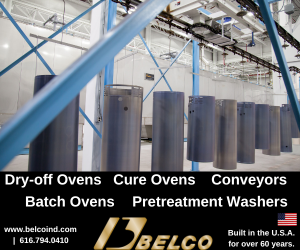Auto Technology Provides Environmental Testing, Equipment
Auto Technology provides a variety of testing, including corrosion and temperature/humidity as well as advanced cyclic environmental corrosion tests.
Auto Technology’s line of corrosion, spray, immersion and multi-gas testing equipment is designed to perform a wide variety of environmental tests including; salt fog, solution spray, high humidity, dry, controlled humidity, immersion, freezing, SO2 gas and Dwell. Typical testing calls out for the standard ASTM, SAE, MIL, ISO, IEC and industry test methods. At the company’s booth, learn about its successful A2LA accredited test lab.
Auto Technology Co. | 440-572-7800 | autotechnology.net
Related Content
-
Explore Cleaning Chemistry, Metal Finishing Applications and Wastewater Treatment Solutions
Hubbard-Hall Celebrating 175 years of excellence, Hubbard-Hall presents chemistry and equipment.
-
NASF/AESF Foundation Research Project #120: Electrochemical Destruction of Perfluorooctanesulfonate in Electroplating Wastewaters - April 2022-March 2023
This NASF-AESF Foundation research project report covers project work from April 2022 to March 2023 at the University of Illinois at Chicago. The overall objective of this work is to utilize a cost-effective reactive electrochemical membrane (REM) for the removal of PFAS from synthetic electroplating wastewater. Initial results for the oxidation of PFOA with three different catalysts are discussed.
-
NASF/AESF Foundation Research Project #120: Electrochemical Destruction of Perfluorooctanesulfonate in Electroplating Wastewaters – January – December 2023
This NASF-AESF Foundation research project report covers quarterly reporting for the year 2023 at the University of Illinois at Chicago. The objective of this work is to utilize a cost-effective reactive electrochemical membrane (REM) for the removal of PFAS from synthetic electroplating wastewater. Discussed here are the oxidation of PFOA with three different catalysts, development of a method for detecting PFAS, as well as work on 6:2-fluorotelomersulfonic acid (6:2 FTS) and electrodeposited bismuth/tin oxide catalysts.






.jpg;maxWidth=300;quality=90)





